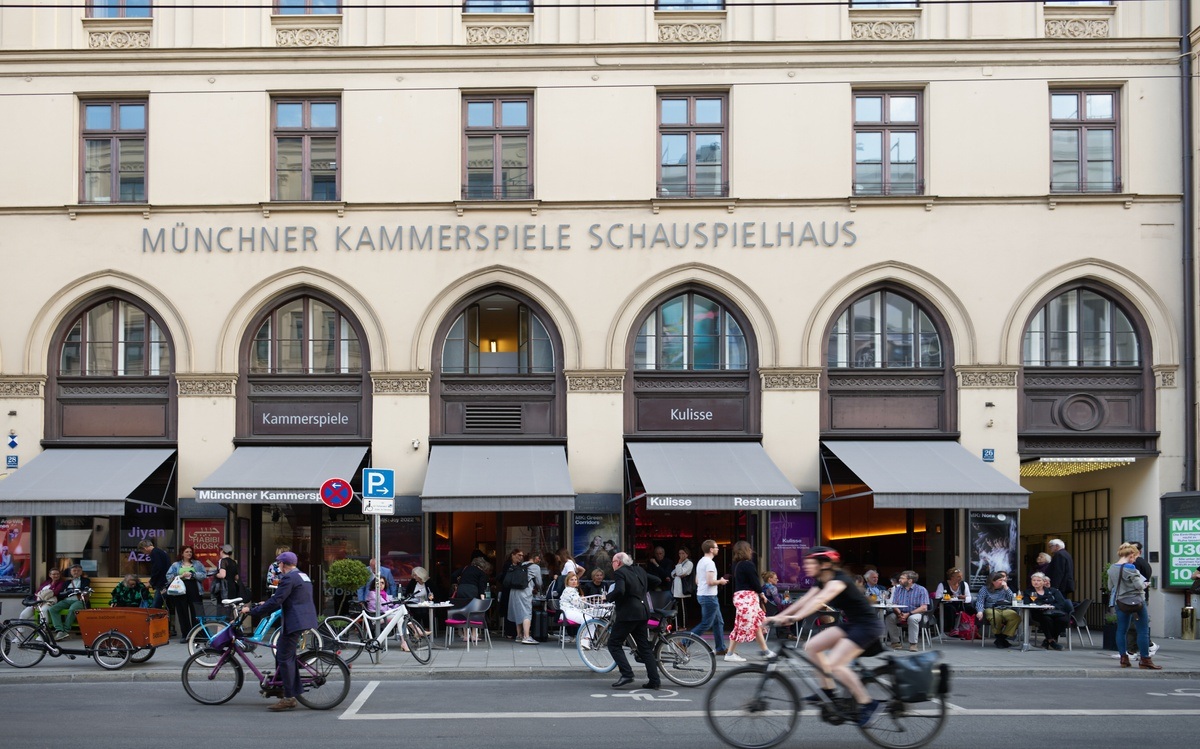
Anti·gone
In the organizer's words:
Can we break out of the cycle of violence?
"Direct, straightforward, full of main ideas. The philologist's glasses can stay in their case. An exhilarating experience." (nachtkritik.de)
ClickHERE for the text in plain language.
Antigone by Sophocles is a classic among Greek tragedies that is still relevant today because of its profound themes and characters. The plot revolves around a confrontation between Antigone and her uncle Creon. Antigone and Creon hold different beliefs and values, which leads to conflict and confrontation. Is there understanding despite their different views? People have a right to have a place to rest after death, a grave, says Antigone and rebels against her uncle Creon. And what happens to a newly crowned king when such an opponent threatens him before he has gained his authority? How does he act in this situation? Does he look at the crisis from all angles and consider what is best for the city he rules?
The interest in Sophocles' Antigone remains to this day. What ghosts of the past do we still carry with us, how do we process what we have inherited from generations before us? The production asks where understanding and empathy end. By translating Sophocles' drama into *light language and with an alternative ending, the ancient material is rewritten.
The language version of the play is based on the 2,400-year-old original edition by Sophocles and scenes from the 1946 version by Jean Anouilh. The result, in collaboration with people with Down's syndrome, is more than a mere translation, but rather an independent version of the play in plain language. Thanks to the short, concise sentences in the dialogues, the characters of the figures emerge much more clearly, their conflicts lie directly on the surface, and Anti-gone shows in this version how topical the big questions of Greek drama are: How do we deal with different values and ideas? How do we negotiate power and responsibility? What do conflicts do to us? What is the price of oppression? Can we break out of the cycle of violence?
[figure antigone_gp_1, antigone_gp_3, antigone_gp_4, antigone_gp_2, antigone-02, antigone-03, antigone-04, antigone-14, antigone-05, antigone-06, antigone-07, antigone-08, antigone-09, antigone-10, antigone-11, antigone-12, antigone-13, antigone-01]
Why Antigone in plain language?
In its early days, plain language existed primarily as a written language and is still used almost exclusively for everyday texts: How do I fill in a ballot paper? What exactly does the Federal Participation Act say?
However, the UN Convention on the Rights of Persons with Disabilities, which Germany signed in 2009, explicitly states that plain language should enable users to participate in all areas of life - including cultural participation, as called for in Article 40 of the UNCRPD. And, this is also important: it is not just about plain language as a form of accessibility for audiences, but also about barrier-free access for cultural professionals to stages, film sets or art schools. It is therefore only logical that the Münchner Kammerspiele should commission a work for Anti-gone in Plain Language and stage Anti-gone in Plain Language with an inclusive ensemble.
Price information:
Thu-Sat: 25€, Sun-Mi: 20€, under 30 years: 10€
Location
You might enjoy this as well?

























Gemeinsam Events erleben
Events werden noch schöner wenn wir sie teilen! Deshalb kannst du dich jetzt mit Friends und anderen Usern vernetzen um Events gemeinsam zu besuchen. Loslegen